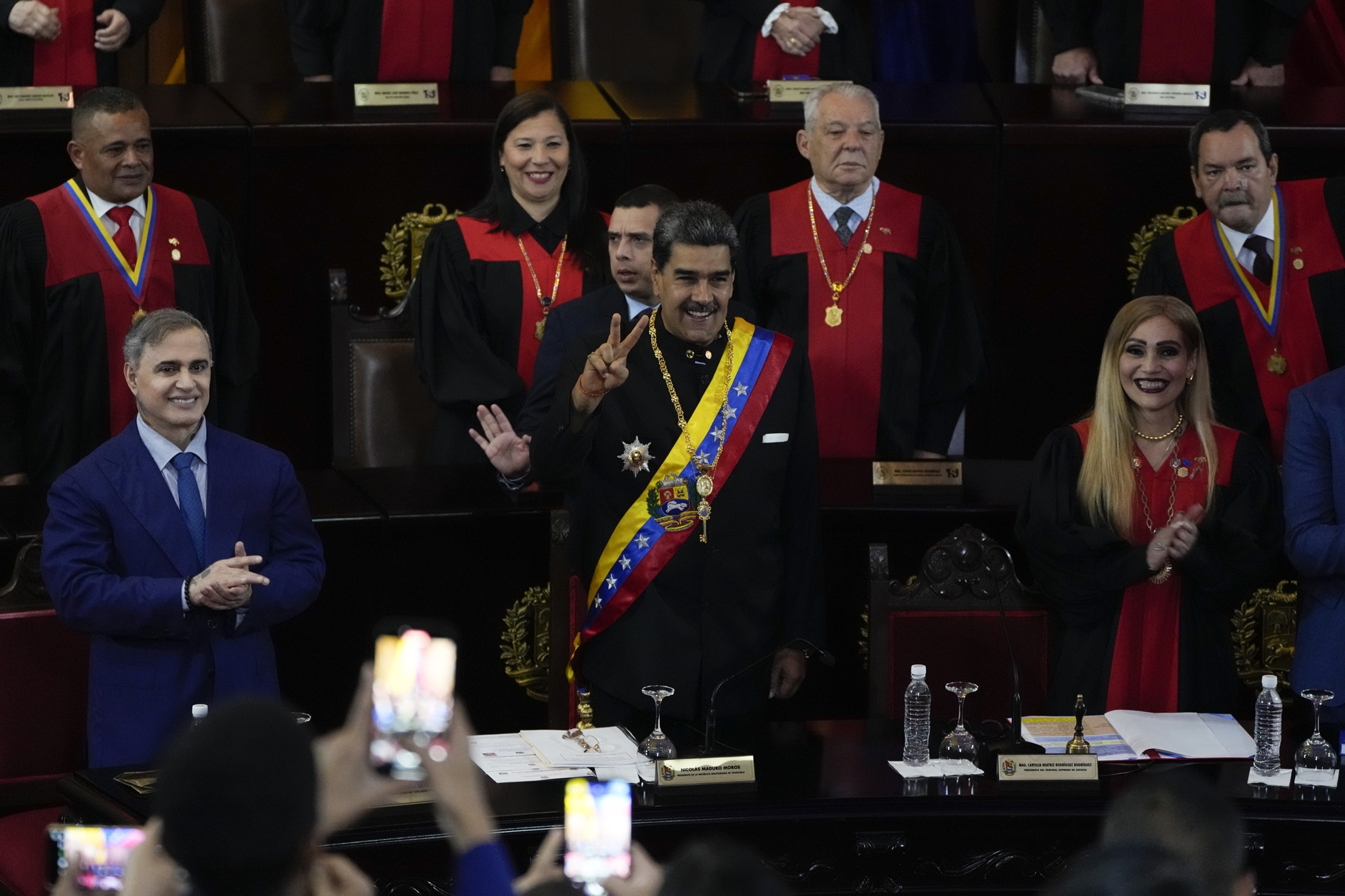In recent days, information has been circulating that raises the possibility of a repeat presidential election in Venezuela, following serious allegations of electoral fraud that declared Nicolás Maduro the winner over opposition candidate Edmundo González.
One of the critics of the irregularities that were committed during the process in the country has been the former Colombian president Iván Duque, who publicly denounced that the authorities would be evaluating the option of calling citizens to the polls again.
Chavismo, on the other hand, has argued that the National Electoral Council system was hacked, but so far they have not presented evidence to support Maduro’s proclaimed victory, despite the existence of manual mechanisms to prove it, such as the use of the minutes that the opposition has already made public.
Faced with questions and the impossibility of proving victory, Maduro turned to the Supreme Court of Justice to intervene in the results, although it is not constitutionally empowered to resolve a situation like this. In addition, the highest Venezuelan court is made up of judges loyal to Chavismo, including its president Caryslia Rodríguez.
What did Iván Duque say about the presidential elections in Venezuela?
Without naming the source, former President Iván Duque said: “There is talk that within the Supreme Court of Justice of Venezuela, the possibility of declaring the elections null and void is being studied, given that the data could have been corrupted due to the “cyber attack” that Maduro wants to use as a smokescreen.”
He pointed out the reasons why this would be a strategic and possible scenario for the Chavista regime.
“The TSJ ordered the CNE, among other things, to provide all technical information that attests to the ‘cyber attack’ of which the CNE claims to have been the victim on Sunday, July 28, which is why it has not been able to provide the minutes,” it states.
“Colombian President Gustavo Petro has suggested holding new elections to help Maduro, and Mexico and Brazil are seeking to do the same,” the former president added.

According to Duque, the Supreme Court of Justice of Venezuela will consult one or two companies specialized in cybersecurity to analyze the technical information provided by the CNE on the alleged cyber attack.
This will lead to the conclusion that the attack occurred and that, as a result, a considerable part of the data was compromised. He also hinted that obtaining a cybersecurity forensic technical report from a specialized company would not be difficult for the magistrates considering that they have sufficient resources to do so.
“Since the data is corrupted, it does not accurately and truthfully reflect the expressed will, which would administratively and legally justify that the bulletins issued by the CNE were based on information corrupted by the ‘cyber attack’, freeing Mr. Elvis Amoroso and the CNE rectors from legal responsibility, since there was no intention to favor one of the candidates, but rather their decision was based on unreal and corrupted figures,” said the former Colombian president.

What measures would Venezuelan authorities take in response to a suspected hack of the electoral system?
Duque suggests that, according to cybersecurity experts, the following could be considered an essential measure:
• The recommendation by the CNE to de-proclaim Nicolás Maduro, which is believed to be able to reduce both national and international pressure.
• The possibility of calling a new presidential election for the first half of December 2024. This could allow Chavismo to regain ground and reorganize its forces within four months to improve the system and ensure its victory in the elections.
• The proposal to guarantee the opposition fair and safe conditions to carry out its electoral campaign.
• The suggestion to immediately release all those detained during the protests in order to also calm social tensions.

The democratic opposition, which supports Edmundo González, claims to have more than 80% of the records that confirm a landslide victory for its candidate. It even published all these documents on a website so that citizens and the international community can access them and confirm that the National Electoral Council fraudulently proclaimed Nicolás Maduro.
Duque also indicated that the decision of the TSJ would be seen as a role of neutral and wise mediator, whose immediate effects would be:
• Stabilize the situation by eliminating the reasons for protest.
• Eliminate fraud allegations by recognizing that data was altered by a cyberattack.
• Satisfy certain sectors of the international community by guaranteeing a new electoral process and annulling the current one.
• Give the regime a four-month period to strengthen its defenses and ensure victory in the December elections.
Faced with this, former President Iván Duque warned:
“This plan must be prevented. Edmundo González is the president elected by the people, as demonstrated by 82% of the minutes published by the brave electoral witnesses of the democratic resistance. This result shows an overwhelming victory. The verdict of the people must be respected. No more tricks of the dictatorship! Free Venezuela!”
🚨🚨Alert! This dangerous information is circulating.
“There is talk that the Supreme Court of Justice of Venezuela is considering declaring the elections null and void, given that the data may have been corrupted due to the “cyber attack”…
— Iván Duque 🇨🇴 (@IvanDuque) August 4, 2024
Keep reading:
• Blinken speaks with González Urrutia and Machado and expresses “concern” for their safety
• Argentine diplomats expelled from Venezuela: “These were traumatic hours”
• Venezuelan Supreme Court requests election records and evidence of electoral system hacking
